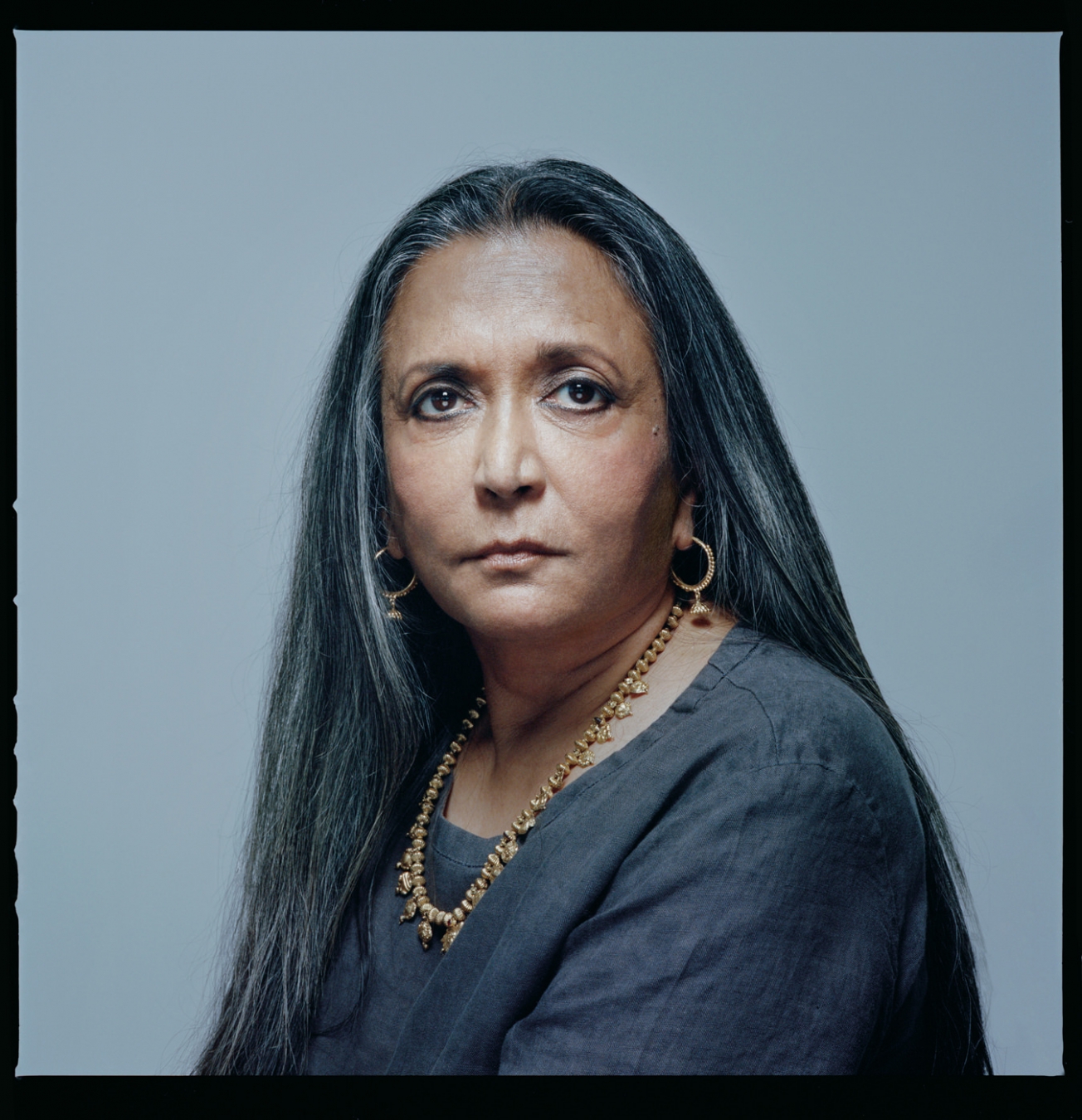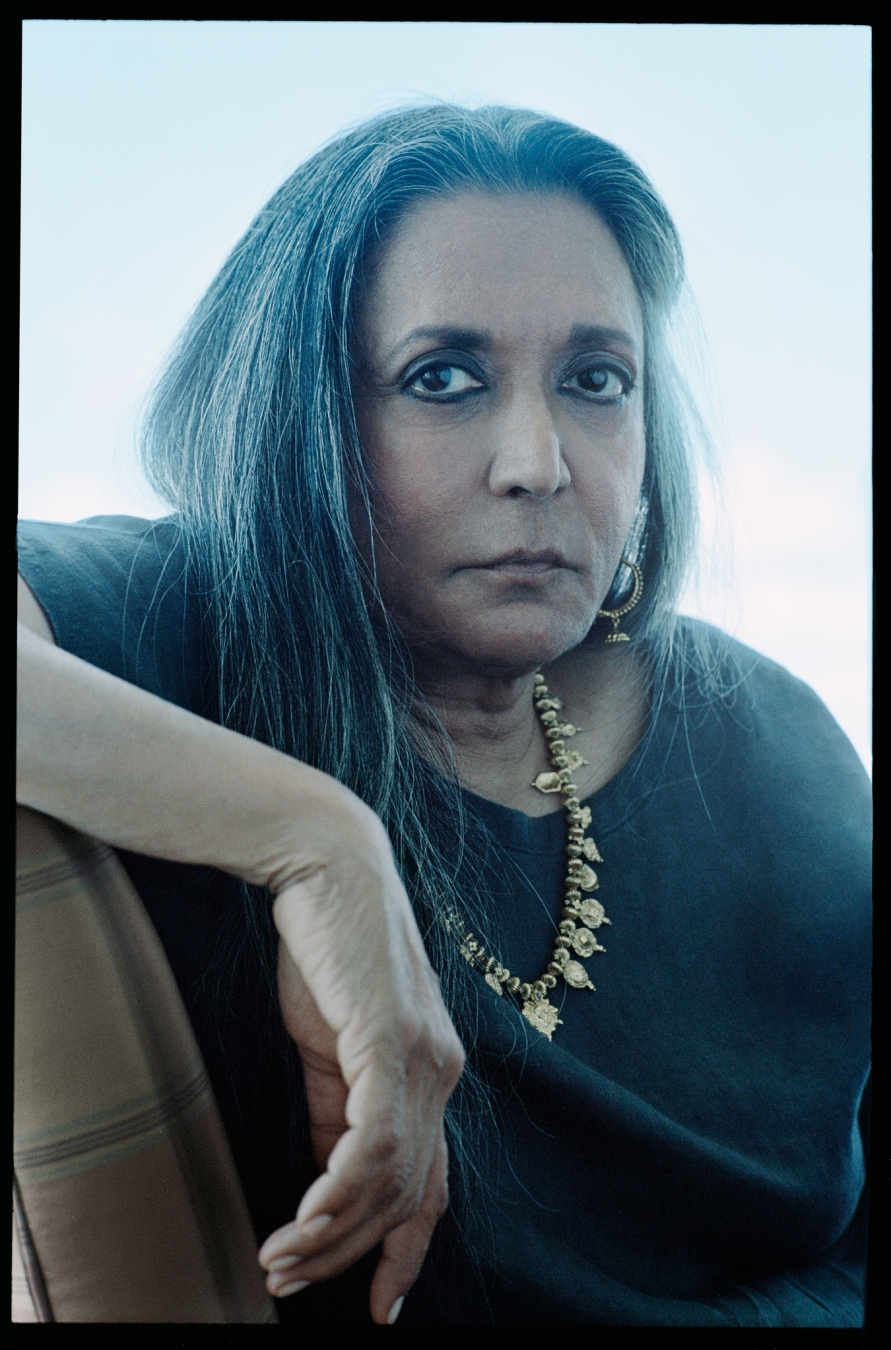There is a scene in Beeba Boys, the new feature film written and directed by the revered Deepa Mehta, in which a carful of gangsters debates the proper use of “you and me” versus “you and I”. It is a moment of comedic relief, a reminder that even though these men make a living out of crime, they are human, they are whole characters—normal guys. It is an underlying theme throughout the film, which follows a gang of Indo-Canadians in Vancouver as they fight for territory and grapple with the daily realities of gambling with life and death.
Beeba Boys is the first gangster film directed by a woman in nearly 40 years. It is unarguably a male-dominated genre, but that was hardly a deterrent for Mehta; she has never been one to conform. “I love gangster films—what’s the big deal?” she says, sitting at a table by the tall windows of her downtown Toronto condo, the city stretched out below. “All films are hard. What excites me is when I can do a film that I don’t know much about; so I go into a genre like horror or gangster and it’s exciting. You’re learning. I don’t know why more women haven’t done it.” Beeba Boys had a gala premiere at the Toronto International Film Festival (TIFF) and opens Canada-wide in mid-October through Mongrel Media. It is packed with action, tragedy, love—the Punjabi rap music is catchy and the men are good looking. It’s thrilling and fun, an Indo-Canadian Scarface. And while the story of these Beeba Boys is fictional, the film is deeply rooted in fact; the Greater Vancouver Area has dozens of gangs, many of them Indo-Canadian.
Beeba Boys is unlike anything else in Mehta’s repertoire. Her work is known for shedding light on the issues facing Indians, particularly women; they are often set in India, and while they are internationally renowned, the films remain on the outskirts of the mainstream. Beeba Boys is a leap from that, a charge in a new direction; still, it is certainly the work of Mehta, and her hand is felt throughout. “You can’t go against what your commitment is to the film,” she says. “It has to be my vision. Whether it sinks or swims, I have to take responsibility.” Aside from being visually stunning, as is characteristic of her work, this is a film that is fiercely politically charged (“all art is political,” she declares without prompt). Lurking beneath the money and guns is a story of identity, of a group of ostracized people unsure where they fit in Canadian society. “There are identity problems,” she says. “Most Indo-Canadian gangsters live at home, so they aren’t disenfranchised; they’re not sons of broken homes or from families that have no money. That became very interesting. So it became about immigration. Identity and immigration are big concerns of mine. I think the film has a lot to do with: what is one’s identity?” She mentions the political climate in British Columbia, and the province’s feelings towards South Asian immigrants since the Komagata Maru incident in 1914. In some ways, the effects have resonated over the entire century.
“I’m intrigued by the good-bad guy, or the antihero, or the negative role model. I think that’s fascinating, because they exist, they really do.”
Mehta is feisty when she needs to be, thoughtful and sincere but also blunt; she doesn’t like to waste time, but her presence is warm, and her laugh is deep and round. Her well-known films include the comedy Bollywood/Hollywood and the Elements Trilogy Fire, Earth, and Water. She was born in India and immigrated to Canada after studying philosophy at the University of New Delhi. Her film career began with making documentaries in India, and her first feature, Sam & Me, was released in 1991. Water, about an Indian child widow, started shooting in India in 2000 but was met with death threats and riots from Hindu fundamentalists. Production was shut down and the crew left the country, but relocated to Sri Lanka in 2004 and completed the shoot. The final product was nominated for an Oscar for Best Foreign Language Film. “Water resonated ethically not just with women who were coloured who were widows—you could be white, yellow, pink, it didn’t matter. It’s an emotional story,” Mehta explains. “That’s the way I feel about Beeba Boys. Yes, it’s very specific, yes, it’s set in Vancouver, yes, it’s about Indian gangsters—but it’s also about everybody. All of us feel disenfranchised. The characters are antiheros, they’re people you’re not supposed to like, but you can’t help feeling something for them. It’s a specific film, but it’s also universal because the concerns are universal: How do you fit in?”
For the Beeba Boys, though, it’s also about standing out. These characters are young men who were born in Canada, who grew up in the cultural clash of their parents’ country and their own. When one’s ethnic identity is muddled, it becomes about making a name. They wear flashy suits and drive fancy cars because they want to be seen, to prove themselves, to show that they deserve to be here, too, that they have a presence. This confidence is not accidental; in fact, it is integral. “They’re sort of cool and they’re brown, and I like that,” Mehta says of the characters. “Indian men haven’t been portrayed like that. Brown actors are cast as cab drivers, clerks in the corner store; all of these actors have been offered roles as terrorists. If they get really lucky they get to be a doctor in the emergency room. There’s amazing talent that Canada has. This is a step towards saying, ‘Hello, we’ve got a lot of talent that’s not just white.’” The film, shot in Toronto and on location in Vancouver, stars many Canadian actors, including Ali Momen and Sarah Allen, as well as Bollywood favourite Randeep Hooda and Wes Anderson film regular Waris Ahluwalia. “I’m thrilled for the film, I’m thrilled for the actors,” says Mehta, discussing the TIFF gala. She talks about her cast with great admiration, a testament to her humility. Mehta’s films come from within, but they don’t belong to her. She doesn’t purposefully go for the glory, though it does seem to end up in her path.
“All films are hard. What excites me is when I can do a film that I don’t know much about; so I go into a genre like horror or gangster and it’s exciting.”
She is committed to telling untold stories, no matter how controversial or taboo. Mehta does heaps of research before writing a script, and in the case of Beeba Boys, visited the homes of some Indo-Canadian gangsters in Vancouver, even having lunch with one of their mothers. “I asked her, ‘Do you know what your son does?’ She said, ‘Of course I know what he does,’” Mehta recalls. “And I said, ‘What does he do?’ She said, ‘He’s in import/export.’ I started laughing, because obviously he exports marijuana and imports cocaine.” A similar line makes it into the film, which for an uninformed viewer, could seem sensational, but in reality, is startlingly accurate. “I’m intrigued by the good-bad guy, or the antihero, or the negative role model. I think that’s fascinating, because they exist, they really do. To explore that in the film with [gang leader] Jeet was fantastic: how do you balance the fact that he’s a ruthless killer without glamorizing him? Because there’s nothing glamorous about crime, as the boys found out,” says Mehta. “It’s about lives lost. It’s about the futility of the choices we make. And this choice in particular is so futile because it can only end in one way, and that’s in a body bag.” This is resonant in the name of the film, as well: beeba means good in Punjabi. Even criminals aren’t cut so simply.
Mehta’s films are layered and complex, her characters well rounded and messy; she propels the conversation forward, asks the tough questions and is unapologetic about it. Mehta is a resolute artist. She’s the wood and the fire, the yell and the echo.
Makeup by Sandra Yang.










